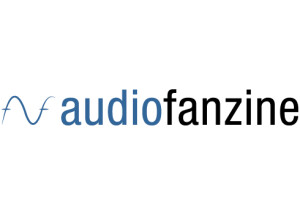October 4, 2014 editorial: comments
- 14 replies
- 11 participants
- 5,428 views
- 11 followers
Mike Levine
Night of the Living Cassettes
It’s funny what people get nostalgic for. Just look at the incredible popularity of Instagram's retro filters, which make photos look like they were taken by cheap, mid-century film cameras. In the music world it's the cassette, which has come back to life like a zombie stalking the audio landscape. Now, bands are putting out entire albums on cassette.
The other day I received an email about a “cassette emulator” app for iOS. Its App Store blurb says, “Do you still remember the cassettes from the 80s? Now you can have it again.” What that grammatically challenged description is referring to is that this app processes your music collection to make your songs sound like they’re playing back on cassettes. Oh boy, I can't wait.
If you're too young to have experienced the original cassette era, let me assure you that you didn't miss much. The annoying little cartridges were loaded with skinny 1/8” wide tape that ran at a slug-like 1.875 inches per second (ips), compared to 7.5, 15 or 30 ips on reel-to-reel machines, and were notable for their copious levels of hiss. Yes, there were noise reduction systems of various types (remember Dolby B, C and HX Pro) that definitely improved the cassette's fidelity to some degree, but basically all of that was a vain attempt to, as the saying goes, “polish a turd.”
Oh, and then there was the cassette’s wonderful trait of randomly unwinding for no apparent reason — in the middle of playback or recording. I have memories of trying to wind back mounds of cassette-tape spaghetti by turning a pencil or pen stuck through one of the cassette’s supply reels, hoping fervently that the tape hadn't gotten twisted beyond repair. Probably the best thing you could say about the cassette as a format is that it was better than the dreaded 8-Track cartridges that preceded it.
Yet somehow, it has returned from the grave. This reanimation of the cassette format is very different from the resurgence of vinyl — you can make an argument for the sound of vinyl versus the sound of digital. But a cassette? If you A/B’ed a cassette against a digital recording the quality differences would be stark — like comparing a fast-food hamburger to a prime cut of steak.
Overall, the “lo-fi” craze is a bit mystifying, for me. A case in point: A friend of mine who is an excellent mixer, was working on a project for his 20-something son’s band, only to be told he was making it sound too good! Huh? With all the trouble we all go through to learn proper recording techniques and capture the best quality audio we can (not to mention spending our disposable and not-so-disposable income on more and better gear), what’s the appeal of purposely trying to make a recording sound less than stellar, and especially of embracing an inferior format like the cassette? Maybe I'm missing something important here, but I just don't get it. As always, your comments are welcome.
One programming note: the AES (Audio Engineering Society) convention is taking place October 10-12 in Los Angeles, and the Audiofanzine team will be there to cover it. Keep your eye on our news section all week, as some products are sure to be announced prior to the show's start.
Mike Levine
U.S. Editor, Audiofanzine
- 1
- 2
Mike Levine
I still love using Cassettes for entertainment
We'll have to agree to disagree on that one. In addition to the frequency-response and durability issues I mentioned in the editorial, having to rewind and fast forward to get to a particular song is a big time waster and just seems like such an antiquated concept. Now that cassettes are no longer a necessary evil, I, for one, have no interest in revisiting them. That said, I'm glad you get enjoyment from them, and if artists want to put out albums on cassette and can get a good response from their fans that way, more power to them. We're lucky that we have more format choices than we did back when cassettes were in their "prime."
ryan.roullard
Once BB King could afford the Cadillac he was always pining for, I find his studio-polished songs about being broke a lot harder to believe.
Case in point:
https://en.wikipedia.org/wiki/Nebraska_(album)
Nowadays, when everyone can get pretty good results with just a laptop and some mics, I think of lo-fi as a creative tool to help make new music evocative of another place and/or time. It has value on the right projects.
Guitorb
AudioHipster
AudioHipster Recording Services
ryan.roullard
We're in the digital era, and disk space is cheap. Whatever you or me or anybody else wants to listen to—hey, we got room for it.
- < Thread list
- Rules
- 1
- 2

